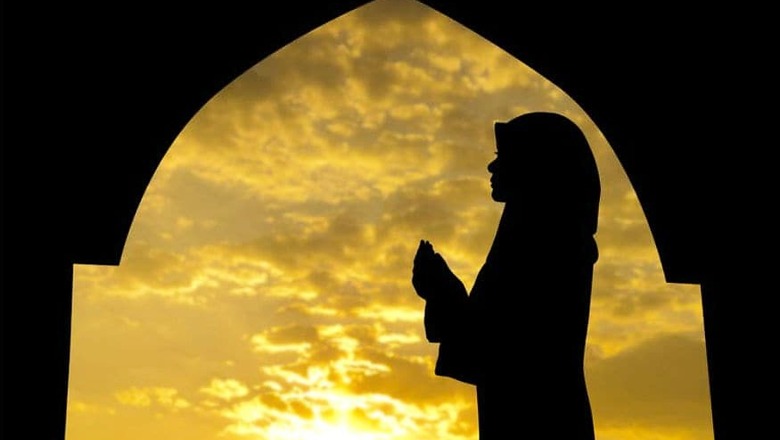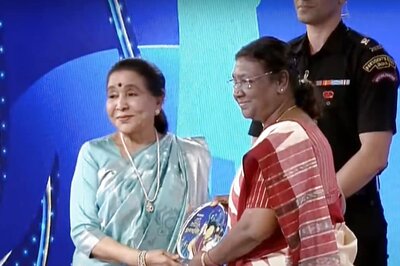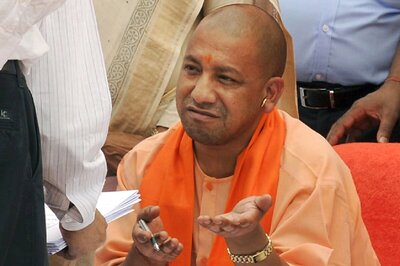
views
Arif Mohammad Khan was a minister in the Rajiv Gandhi-led Congress government in 1985 when the Supreme Court delivered the historic Shah Bano judgment that had the conservative Islamic clergy up in arms. Khan left the government and the Congress party soon after Rajiv Gandhi brought in a new legislation to circumvent the SC ruling to appease the clergy.
Here in this interview with News18’s Eram Agha, Khan talks about how the political class of India has shied away from arguing for reforms in the Muslim community for fear of earning the wrath of the clerics. Excerpts:
The Allahabad High Court, while dismissing a petition related to Triple Talaq, observed that, “The view that the Muslim husband enjoys an arbitrary, unilateral power to inflict instant divorce does not accord with Islamic injunctions. It is a popular fallacy that a Muslim male enjoys, under the Quranic Law, unbridled authority to liquidate the marriage. The whole Quran expressly forbids a man to seek pretext for divorcing his wife, so long as she remains faithful and obedient to him.” How do you look at this?
If you have read Quran then you cannot but agree totally with this observation. The husband’s right to divorce the wife is hedged with so many preconditions like counselling, keeping distance on the marital bed and explain by giving examples about the ruinous impact that accrues from divorce. After all these attempts on the part of husband fail, then Quran prescribes appointment of two arbiters: one from the family of man and one from the family of wife who are entrusted with the task of reconciliation (Quran 4.34 and 35). If the arbitrators also fail then the Quran (65.1) permits pronouncement of divorce, again with the condition that for next three months they will continue to live together as they were living before the pronouncement. In this period they can review and change their decision. Even if they do not do so and separate at the end of Iddat (cooling off period), the option of remarriage remains available to them. The verse says that these are the limits (Hudood) and what is described as Hudood, no clergy has the authority to change it. Quran (2.229) emphatically says that this option can be exercised only twice in lifetime. Here Quran talks about the due procedure not pronouncements.
It is crystal clear from these verses that Quran tries utmost to save the family, whereas the divorce effected through three pronouncements expedites the dissolution of marriage and has a disastrous impact on the lives of those involved particularly the children.
Why is the amendment in Muslim personal law going nowhere despite Muslim women organisations raising their voice demanding reform...
Indeed the question is very disturbing. In fact, more than the actual occurrence of Talaq, it is the erroneous knowledge and awareness that a husband has the unrestrained right to divorce wife without going through any due procedure and without any fault of her that de-humanizes women. Quran accords equal respect and dignity to both men and women and no person has the right to abridge or take away that honor and dignity.
Do you think regressive trends are hampering the progress of Muslim women in India?
Muslim women must continue their fight for equality and justice as ordained by the Quran and they should remember that right from the blessed Prophet to every reformer like Sir Syed have always faced criticism and abuses of the agents of the cleric establishment. Learn to ignore it and then you will reach a stage where they would start accepting you.
The Court has mentioned that in the absence of serious reasons, no man can justify a divorce, either in the eye of religion or the law. If he abandons his wife or puts her away in simple caprice, he draws upon himself the divine anger, for the curse of God, said the Prophet, rests on him who repudiates his wife capriciously. In other Islamic states, the husband must satisfy the court about the reasons for divorce but why is it not happening here in India?
No person with any understanding of Quran and Hadith can disagree with the observation of the court. But the story does not end with earning divine curse. A narration in Sahi Muslim (No. 1472) says that during the lifetime of the Prophet, the first Caliph and during the first two years of the second Caliph, three pronouncements were treated as one pronouncement and the second Caliph who had later allowed three pronouncements to become effective did so to punish those who resorted to triple divorce in contravention of the provisions of Quran. He used to subject such persons to severe punishment of forty lashes.
Even today mere declaration of Triple Talaq being unconstitutional will not put an end to this nefarious practice. Triple Talaq need to be made a punishable offence. Now, lashing is not an acceptable mode of punishment but a provision of imprisonment for three years can be made for a person who resorts to triple divorce.
It is true that almost all Muslim countries have already outlawed Triple Talaq and even polygamy can happen only after the petitioner satisfies the court that genuine grounds for second marriage exist. If Islam is one and same for the whole world then why the Indian Muslim male should be allowed to enjoy these arbitrary privileges defies common sense and reason?
According to the AIMPLB affidavit, banning polygamy may tantamount to promiscuous sexual practices or murder of women at the hands of their husbands. What does this say about them and their view regarding the status of Indian Muslim women?
These assertions of Personal Law Board must be treated with the contempt they deserve. But forget not that in 1985 in the case of Shah Bano their affidavit had asserted the verse of the Quran (2.241) that says that “for divorced women maintenance should be provided on a reasonable scale. This is a duty on the righteous.” This verse is addressed to the Muttaqeen (righteous) and not to the ordinary run of Muslims. They feel no compunction in giving an interpretation that may violate the spirit of the Book but suits their own whims and desires. Possibly it is for such people that Quran (2.79) has said: “Then woe to those who write the Book with their own hands, and then say: This is from Allah to traffic with it for a miserable price. Woe to them for what their hands write and for the gain they make thereby.”
What do you say about the role different political parties have played in this debate of gender justice for Muslim women? Where do you place the voice of Congress, Left and BJP with regards to triple talaq?
When it comes to Muslims, Indian political parties do not view themselves as the social reformers. In the case of Hindus they show courage and initiate measures for social welfare and reform but about Muslims they fear the clergy and feel that the demand for reform must come from within the community. I feel that we cannot blame them if they do not want to take the risk of being accused of interfering in religious affairs of Muslims. But to ensure that all laws that are in force in India immediately before the commencement of the Constitution must be consistent with the provisions of the fundamental rights is the duty of both the political establishment and the judiciary. The political establishment has largely failed to do its duty but it is a matter of satisfaction that the courts have stood up to protect and safeguard the rights of this neglected section of Indian citizens that is Muslim women.




















Comments
0 comment